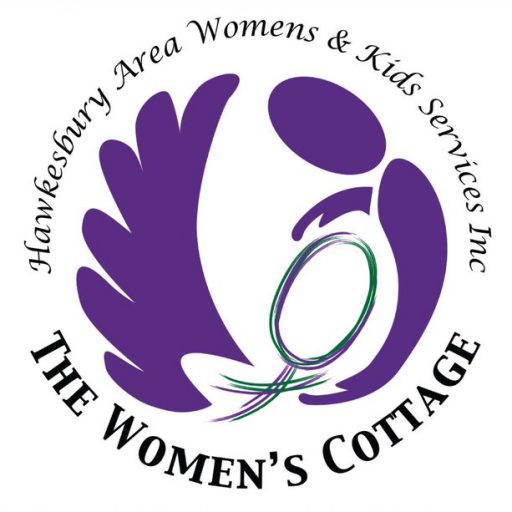Recognising & Respecting The Experiences and Rights of Aboriginal & Torres Strait Islander People
The Women’s Cottage, and all our workers will abide by principles of practice for working with Aboriginal / Torres Strait Island women and community.
The purpose of these principles of practice is to recognise and articulate important issues that need to be considered in the work practice of all roles / workers and to identify and direct minimum standards and duty of care in all our dealings with Aboriginal clients.
Responding to Aboriginal/TSI Clients and Community:
All paid and unpaid staff have a specific Duty of Care to provide respectful, culturally relevant, and genuine support to Aboriginal/TSI Women and Community as part of their role at The Women’s Cottage. This includes:
- Recognition of the Darug people as the local Traditional Owners and First Nation status of all self-identified Aboriginal people.
- Respect for community Elders.
- Respect and awareness of the ongoing impacts of the removal of children and the separation of families for issues such as lost cultural identity; lost connection to family, community, and Country; possible negative impacts of parenting and maintaining healthy relationships; substance addictions; potential impact on physical and/or mental health.
- Respect and awareness of the past and ongoing impacts of colonisation on Aboriginal people and the potential resulting impacts of inter-generational trauma on all areas of life and relationships.
- Understanding the known barriers and challenges for Aboriginal women seeking support from non-Aboriginal services and taking active steps to facilitate ease of access, genuine engagement, cultural respect, cross cultural communication, and responsiveness to needs. This may require additional time, resources and/or referrals.
- Ask Aboriginal / TSI women if they want to have contact with the Aboriginal worker at The Women’s Cottage and/or with other Aboriginal workers from other services. And to understand and respect that some Aboriginal women would prefer NOT to see an Aboriginal worker.
- Seek advice and/or support on cultural issues and service minimum standards for working with Aboriginal / TSI women and community if needed. This can be done by talking to the Manager and/or Aboriginal worker at The Women’s Cottage.
Supporting Aboriginal/TSI Workers:
Aboriginal workers play an essential role in supporting The Women’s Cottage to build and maintain genuine engagement with local Aboriginal Community. Aboriginal workers (in both designated and generalist positions) bring with them cultural, community and kinship relationships and understanding as well as knowledge of Aboriginal workers, services, networks, community initiatives and social issues. These pre-existing relationships and community knowledge form a rich foundation for generalist services to draw on and have access to.
It is recognised that Aboriginal workers that are well supported and culturally connected greatly help to inform and support service provision across the agency that is culturally informed, relevant, and respectful. It is therefore recommended that the unique nature and resource of this role be recognised and formally valued as part of the job description of Aboriginal workers employed at The Women’s Cottage.
Aboriginal workers assist The Women’s Cottage to provide respectful and informed cultural support and genuine engagement with Aboriginal and Torres Strait Islander community. This could include but not be limited to the following duties as part of their standard work role:
- Aboriginal Community Support
- Home visits and transport for Elders
- Consultation and community engagement
- Case management for Aboriginal families with complex needs
- Mentoring and being mentored by other Aboriginal workers
- Networking / Partnering with Merana and other relevant Aboriginal specific organisations, projects and/or initiatives
- Support Women’s Cottage participation in NAIDOC, Sorry Day, Reconciliation Week.
- Attend Safety Action meetings for cultural advice if requested by SAMS Coordinator
- Attending Aboriginal specific training, conferences, and events
Personal Cultural Responsibilities of Aboriginal Workers:
It is also acknowledged that deeper personal cultural connections and participation for Aboriginal workers will further enrich the benefits to The Women’s Cottage functioning and client outcomes. Therefore, Aboriginal workers who choose to participate in extended cultural connections and activities that build cultural knowledge will be supported to do so. While this may not always be a part of their paid role, special consideration can be given where possible to offer flexible work arrangements for this broader culture participation. This could include:
-
Participation in Cultural Events and Traditional Ceremony, eg: attending local Smoking Ceremonies and Sorry Business (funerals and other mourning events for Elders and relevant local community members).
• Taking part in Women’s Business ceremony and events
• Other cultural events and activities as negotiated with management
- To focus on changes in the DFV and Family Law legislations.
- Provide information for victims of DFV.
- Develop and implement and Monitor strategies to increase access to community resources for people affected by organisations including but not limited to Domestic and Family Violence.
- Strengthen partnerships between non-government and Government community and health service, legal agencies and the Hawkesbury Police Area Command (PAC).
- Identify gaps in service provision for people affected by domestic and family violence and lobby for increased services, funding and prevention.
We are here to help
Please get in touch with us. We are here to help.
The Women’s Cottage can help you find and understand the options available to you.
Please click the contact details to launch Google Maps, phone call or your preferred email app
Find Us:
Call Us:
02 4578 4190
Email Us:
manager@womenscottage.org.au
